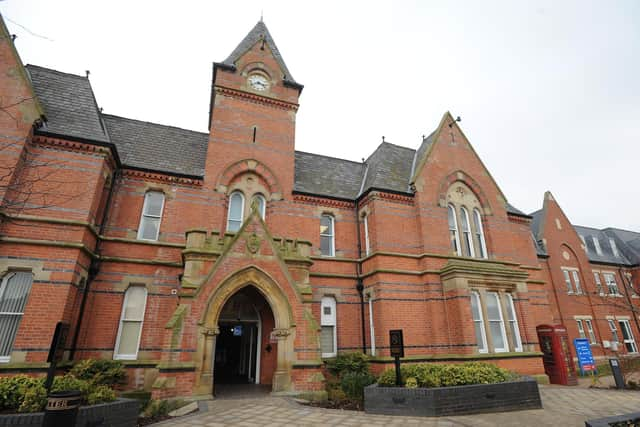Rishi Sunak's NHS pledge one year on: Waiting lists up at Wigan's hospitals
and live on Freeview channel 276
In January 2023 Prime Minister Rishi Sunak made five pledges to the British public – including a promise that "NHS waiting lists will fall and people will get the care they need more quickly".
With figures now available for this January, the PM has failed to cut waiting lists at the Wrightington, Wigan and Leigh Trust, and across England.
Advertisement
Hide AdAdvertisement
Hide AdNHS England figures show 54,481 patients were waiting for non-urgent elective operations or treatment at Wrightington, Wigan and Leigh NHS Foundation Trust at the end of January – down slightly from 54,940 in December, but an increase on 47,044 in January 2023.


Of those, 3,681 (seven per cent) had been waiting for longer than a year.
The median waiting time from referral at an NHS Trust to treatment at WWL is 17 weeks at the end of January – up from 15 weeks in January 2023.
In better news for the PM, January saw the fourth consecutive month-on-month fall across England, although 250,000 more patients were waiting than in January last year. Nationally, 6.32 million patients were waiting for 7.58 million treatments at the end of January.
Advertisement
Hide AdAdvertisement
Hide AdMr Sunak admitted to failing to keep this pledge in an interview with TalkTV.
However, Health Secretary Victoria Atkins says the Government’s "commitment to cutting waiting times is unwavering".
She added: "This has been achieved despite disruptive strikes and record winter pressures on our NHS services."
Claire Wannell, Interim Chief Operating Officer at WWL said: “We understand that delays with appointments or surgery can be frustrating, and we are deeply grateful for the support, understanding and patience from those waiting to be treated.
Advertisement
Hide AdAdvertisement
Hide Ad"WWL has a number of initiatives to target areas where there is an unacceptable backlog of patients.
“One example of this is utilising technology to validate backlog lists to ensure that the people who need to be seen, are seen as efficiently as possible.
"Our text reminder service has also been instrumental in reducing our Did Not Attend (DNA) rate for appointments, by bringing our rate down
from nine per cent in December 2022 to 7.4 per cent in February 2024.
Advertisement
Hide AdAdvertisement
Hide Ad"We would like to remind our patients to please let us know if you no longer need your appointment or need an alternative date and time.
“Despite our waiting list numbers, WWL is making good progress against the national waiting time standard as part of our elective recovery programme and also working with other Trusts across Greater Manchester to ensure all available capacity is used by both accepting and receiving mutual aid.
"We would like to reassure our patients, we are doing everything we can to ensure they are seen as soon as possible for their planned care, with the most urgent cases being prioritised, and we thank you for your patience.”
Shadow health secretary Wes Streeting accused the Government of having "broken every pledge" on NHS waits.
The Health Foundation said despite some progress, the NHS has a "mountain to climb" on waiting lists.
Tim Gardner, assistant director for policy at the charity, said there was no "silver bullet", but investment and long-term action would help relieve pressures on the health service.
Separate figures show 1.6 million patients in England were waiting for a key diagnostic test in January – the same as in December.
Advertisement
Hide AdAdvertisement
Hide AdAt WWL, 11,092 patients were waiting for one of 13 standard tests, such as an MRI scan, non-obstetric ultrasound or gastroscopy at this time.
Of them, 3,913 (35 per cent) had been waiting for at least six weeks.
Prof Sir Stephen Powis, NHS national medical director, said "demand for NHS services across the country remains high".
He said: "It is testament to the hard work of staff and the measures in our elective recovery plan that despite the longest period of industrial action in NHS history in January, with one in five days affected, staff still managed to bring the waiting list down."
He added that staff are using new technologies to bring down the longest waits for patients.
Comment Guidelines
National World encourages reader discussion on our stories. User feedback, insights and back-and-forth exchanges add a rich layer of context to reporting. Please review our Community Guidelines before commenting.
